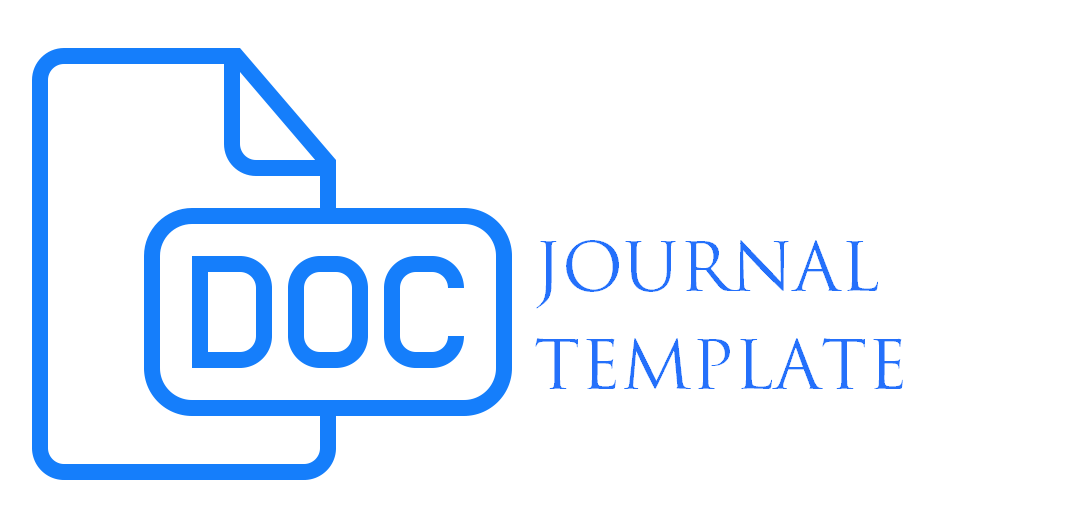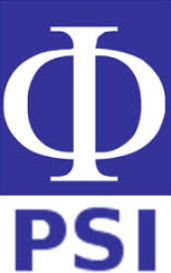PENERAPAN MODEL PEMBELAJARAN KOOPERATIF TIPE GROUP INVESTIGATION UNTUK MENINGKATKAN HASIL BELAJAR FISIKA HUKUM NEWTON TENTANG GRAVITASI PADA SISWA KELAS X1 IPA1 SMA NEGERI 7 KUPANG
(1) Universitas Nusa Cendana
(2) Universitas Nusa Cendana
(*) Corresponding Author
DOI: https://doi.org/10.35580/jspf.v12i1.2025
Abstract
Cooperative learning model group investigation type is an investigation that is done in group where the students do the investigation in group actively, thus enabling to find the principle includes six phases namely choosing topic, cooperative, cooperative planning, implementation, analysis and synthesis, final output presentation and evaluation. The objective of this research is to know the way in applying cooperative learning model group investigation type to improve physics learning output principal material of newton law on gravity to XI IPA1 grade students SMA N 7 Kupang. This research is the class action research type that was done in two cycles. The action application of each cycle was done through planning procedure, the action application, observation, evaluation and reflection. The research subject is the student of XI IPA1 grade SMA Negeri 7 Kupang in 2015/2016 academic year with 31 students. The research instrument was used in the form of observation sheet and the output of Physics learning test to the Newton law material on gravity. Based on quantitative data analysis of the research is acquired students’ learning output data on the first cycle that is, cognitive domain for the first indicator achieves classical completeness 90, 3%, the second indicator 55%, the third indicator 65%, the fourth 94%. The second cycle, cognitive domain for the second indicator achievesclassical completeness 89% and the third indicator 94%. The affective assessment of the students’ participation of the first cycle is achieved the average 65%, with the students’ cooperative 67, 1%, the curiosity 64,4%, communicative 63, 6%, well manner behavior 64,5 % and being good listener 65,5% while in the second cycle the students’ participation has achieved the average 89% with each indicator has achieved the determined criteria 75 %. On the psychomotor aspect, the students’ participation phase of the first cycle is achieved the average 62%, with the students who have the readiness to do the activity 66,3%, mechanism 66,4%, conducted response 64, 3%, presenting the result clearly and interesting 52, 9% and making important notes 60,4% while in the second cycle, the participation phase has achieved the average 82%, each indicator has achieved the determined criteria 75 %. Based on the research result can be concluded that the application of cooperative learning model group investigation type of Newton law material on gravity can improve physics learning output of XI IPA1 grade students SMA Negeri 7 Kupang in 2015/2016 academic year.
Key words : cooperative learning model of group investigation type, learning outcome
Model pembelajaran kooperatif tipe group investigation adalah penyelidikan yang dilakukan secara berkelompok, yakni siswa secara berkelompok melakukan penyelidikan dengan aktif, sehingga memungkinkan menemukan prinsip meliputi enam tahap yaitu memilih topik, perencanaan kooperatif, implementasi, analisis dan sintesis, presentasi hasil final dan evaluasi. Tujuan dari penelitian ini adalah untuk mengetahui cara menerapkan model pembelajaran kooperatif tipe group investigation untuk meningkatkan hasil belajar fisika siswa materi hukum Newton tentang gravitasi pada siswa kelas XI IPA1 SMA N 7 Kupang. Penelitian ini merupakan jenis Penelitian Tindakan Kelas (PTK) yang dilaksanakan dalam dua siklus. Pelaksanaan tindakan pada setiap siklus dilakukan dengan melalui prosedur perencanaan, pelaksanaan tindakan, observasi, evaluasi dan refleksi. Subjek penelitian adalah siswa kelas XI IPA1 SMA Negeri 7 Kupang tahun ajaran 2015/2016 sebanyak 31 orang. Instrumen penelitian yang digunakan berupa lembar observasi dan tes hasil belajar fisika pada materi hukum Newton tentang gravitasi. Berdasarkan analisis data kuantitatif dari hasil penelitian diperoleh data hasil belajar siswa pada siklus I yaitu, ranah kognitif untuk indikator 1 memperoleh ketuntasan klasikal mencapai 90,3%, indikator 2 memperoleh ketuntasan klasikal 55%, indikator 3 memperoleh ketuntasan klasikal 65% dan indikator 4 memperoleh ketuntasan klasikal mencapai 94%. Untuk siklus II pada ranah kognitif khususnya indikator 2 memperoleh ketuntasan klasikal mencapai 89%, dan indikator 3 memperoleh ketuntasan klasikal 94%. Untuk penilaian afektif tingkat partisispasi siswa pada siklus pertama diperoleh rata-rata 65%, dengan siswa yang bekerjasama 67,1%, memiliki rasa ingin tahu 64,4%, komunikatif 63,6%, berperilaku santun 64,5% dan menjadi pendengar yang baik 65,5%. Sedangkan pada siklus kedua tingkat partisipasi siswa sudah mencapai rata-rata 89% dengan masing-masing indikator sudah mencapai kriteria yang ditetapkan yaitu 75%. Pada aspek psikomotorik tingkat partisipasi siswa pada siklus pertama diperoleh rata-rata 62%, dengan siswa yang memiliki kesiapan untuk melakukan kegiatan 66,3%, mekanisme 66,4%, respon terbimbing 64,3%, mempresentasikan hasil dengan jelas dan menarik 52,9% dan mencatat hal-hal yang penting 60,4%. Sedangkan pada siklus kedua tingkat partisipasi sudah mencapai rata-rata 82%, dengan masing-masing indikator sudah mencapai kriteria yang ditetapkan yaitu 75%. Dari data hasil dapat disimpulkan bahwa dengan penerapan model pembelajaran kooperatif tipe group investigation pada materi hukum Newton tentang gravitasi dapat meningkatkan hasil belajar fisika siswa kelas X1 IPA1 SMA Negeri 7 Kupang Tahun Ajaran 2015/2016.
Kata Kunci: model pembelajaran kooperatif tipe group investigation, hasil belajar
Full Text:
PDFReferences
Arikunto, S. 2013. Dasar-Dasar Evaluasi Pendidikan. PT. Bumi Aksara: Jakarta
Huda, M. 2012. Cooperatif Learning Metode, Teknik, Struktur dan Model Pembelajaran. Yogyakarta: Pustaka Pelajar
Jihad, A dan Haris, A. 2010. Evaluasi Pembelajaran. Multi Pressindo: Yogyakarta
Kusumah, W. dan Dwitagama, D. 2012. Mengenal Penelitian Tindakan Kelas Edisi Kedua. PT Indeks: Jakarta.
Rusman. 2012.Model-Model Pembelajaran (Mengembangkan Profesionalisme Guru). Rajagrafindo Persada: Bandung
Shoimin, A. 2014. 68 Model pembelajaran inovatif dalam kurikulum 2013. Ar-Ruzz Media: Yogyakarta.
Slameto, 2013. Belajar dan Faktor-Faktor yang Mempengaruhinya. Rineka Cipta: Jakarta
Sudjana, N. 2011. Penilaian Hasil Proses Belajar Mengajar. Remaja Rosdakarya: Bandung
Suhana, C. 2014. Konsep Strategi Pembelajaran. PT. Refika Aditama: Bandung
Suprijono, A. 2013. Cooperatif Learning Teori & Aplikasi PAIKEM. Pustaka Pelajar: Yogyakarta
Suryadana, A. B, Suprihati, T dan Astutik, S. 2012. Penerapan Model Pembelajaran Kooperatif Group Investigation (GI) Disertai Media Kartu Masalah Pada Pembelajaran Fisika di SMA. Vol.1.3. 268-271.
Trianto. 2013. Mendesain Model Pembelajaran Inovatif-Progresif: Konsep, Landasan, dan Implementasinya pada Kurikulum Tingkat Satuan Pendidikan (KTSP). Kencana Prenada Media Group: Jakarta
Uno, H. B. 2009. Perencanaan pembelajaran. PT. Bumi Aksara: Jakarta.
Article Metrics
Abstract view : 1443 times | PDF view : 588 timesLicense URL: https://creativecommons.org/licenses/by-nc-nd/4.0/
Organized by :
Physics Department
Faculty of Mathematics and Natural Sciences,Universitas Negeri Makassar,
Daeng Tata Raya Street, Parangtambung, Tamalate, South Sulawesi, Indonesia.
Postal Code: 90224 Phone/Fax (0411)840622
Website: http://ojs.unm.ac.id, email: jspf@unm.ac.id

Jurnal Sains dan Pendidikan Fisika (JSPF) is licensed under a creative commons Attribution-NonCommercial-NoDerivatives 4.0 International License










